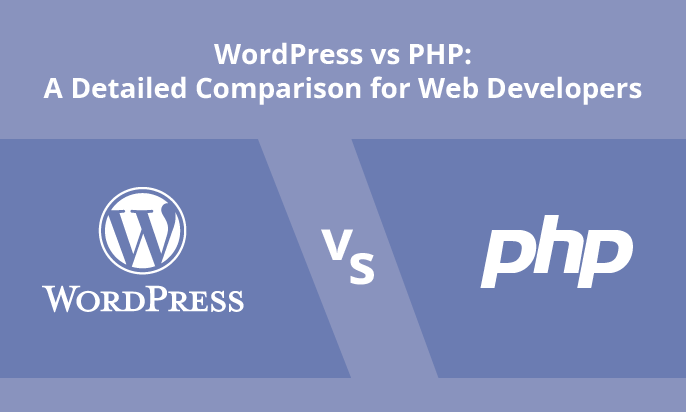In the dynamic world of web hosting and cloud computing, the term “bare metal server” has been making waves. But what exactly is a bare metal server, and why is it gaining prominence? In this comprehensive guide, we’ll delve into the world of bare metal servers, explore its benefits, draw comparisons between bare metal and virtual servers, dedicated servers & cloud servers, and understand how they stack up against virtual servers.
What is a Bare Metal Server?
At its core, a bare metal server is a physical server, often referred to as a “dedicated server,” that is exclusively allocated to a single client or user organization. Unlike virtual servers that share physical hardware with multiple users, a bare metal server offers full access to the entire physical machine.
A bare metal server means a dedicated physical server allocated exclusively to a single user or organization.
Why is it called Bare Metal?
The term “bare metal” in the context of servers and computing refers to the physical hardware of a computer system without any virtualization or abstraction layers. It is called “bare metal” because it represents the raw and unfurnished essence of the hardware, much like a bare metal surface without any coatings or layers on top of it.
In a traditional server setup, the hardware is fully dedicated to a single user or organization, and there are no virtual machines (VMs) or hypervisors involved. When you install an operating system directly on the physical server without any virtualization, you are essentially running your software on the “bare metal” of the server’s hardware. This direct access to the physical resources, including CPU, RAM, storage, and networking, provides maximum control, performance, and isolation, which is why it’s referred to as “bare metal.”
In contrast, virtualization technologies add layers of abstraction, allowing multiple virtual machines to run on the same physical hardware. These VMs share the resources, and there is an additional layer (the hypervisor) between the hardware and the operating systems, which can impact performance and control.
Why Bare Metal is Used?
Bare metal servers are utilized for their unique capabilities and advantages in the realm of IT infrastructure. They find extensive use in scenarios where maximum performance, resource isolation, and customization are paramount. By providing direct access to dedicated physical hardware, bare metal servers deliver unmatched computing power, making them an ideal choice for resource-intensive applications, high-traffic websites, and critical workloads that demand uncompromising performance. The complete isolation they offer ensures data security, predictability, and reliability, making them well-suited for industries with stringent compliance requirements. Moreover, the ability to fully customize hardware and software configurations empowers users to tailor their server environments to precise specifications.
Benefits of Bare Metal Servers
Raw Power and Performance:
Bare metal servers are a powerhouse when it comes to raw computing power. They offer dedicated CPU, RAM, and storage resources, making them ideal for resource-intensive applications and workloads that demand high performance.
Complete Isolation:
With a bare metal server, you enjoy complete isolation from other users. This isolation enhances security, eliminates resource contention, and ensures consistent performance.
Customization Freedom:
Users have the freedom to customize the server as per their specific requirements. This includes choosing the operating system, software stack, and hardware specifications, allowing for tailored solutions.
Enhanced Security:
Bare metal servers are often preferred for applications and data that require the highest level of security and compliance. Exclusive access to the server enables the implementation of robust security measures.
Predictable Pricing:
Pricing for bare metal servers is typically straightforward, with fixed monthly or hourly rates. Users do not encounter unexpected costs related to resource usage or overage charges.
Bare Metal vs. Dedicated Servers
The terms “bare metal server” and “dedicated server” are often used interchangeably, but it’s essential to understand their relationship:
Bare Metal Server: This term emphasizes the complete absence of virtualization or hypervisor layers on the physical hardware. It signifies the most direct access to the server’s resources.
Dedicated Server: While a dedicated server may also refer to a single-tenant physical server, it doesn’t explicitly imply the absence of virtualization. Some dedicated servers may use virtualization technologies for management or isolation purposes.
In essence, all bare metal servers are dedicated servers, but not all dedicated servers are bare metal.
Related: Advantage and Disadvantage of Dedicated Server Hosting
Bare Metal Servers vs. VM (Virtual Servers)
| Aspect | Position | Office |
|---|---|---|
| Resource Access | Exclusive access to dedicated physical hardware resources | Shared resources among multiple virtual machines |
| Performance | High and consistent performance, no virtualization overhead | Varies depending on resource allocation and usage |
| Resource Isolation | Complete isolation from other users | Shared resource pool, potential for contention |
| Customization | Highly customizable, including hardware and software configurations | Customization within provider's parameters |
| Scalability | Limited scalability, requires hardware procurement | On-demand scalability, ideal for fluctuating workloads and growth |
| Security | Robust security, ideal for sensitive data and compliance requirements | Security depends on hypervisor and multi-tenancy |
| Management Complexity | Requires more manual management tasks | Easier management and automation options |
| Resource Efficiency | Full resource utilization with no virtualization overhead | Resource sharing can lead to efficient resource utilization |
| Use Cases | Ideal for resource- intensive applications, mission-critical systems | Versatile, suitable for a wide range of workloads and projects |
Please note that the choice between Bare Metal Servers and Virtual Servers depends on specific use cases, workload requirements, and preferences, and one may be more suitable than the other in different scenarios.
Bare Metal Servers Vs Cloud Servers
Cloud computing & bare metal servers and represent two distinct approaches to IT infrastructure, each with its own set of advantages and trade-offs. Bare metal servers offer raw performance, complete isolation, and high customizability, making them ideal for resource-intensive applications and mission-critical systems. On the other hand, cloud computing provides scalability, cost-efficiency, and managed services, catering to dynamic workloads and startups. The choice between the two hinges on factors such as performance needs, scalability requirements, budget considerations, and the nature of workloads. Many organizations find value in a hybrid approach, leveraging both bare metal and cloud resources to achieve a balance of control, flexibility, and efficiency tailored to their unique demands.
Why Bare Metal is Better?
Bare metal servers are often considered superior in certain scenarios due to their unique advantages. Their primary strength lies in their ability to provide complete access to dedicated physical hardware, offering exceptional performance, resource isolation, and customization. This raw power makes bare metal servers the preferred choice for resource-intensive workloads, high-traffic websites, and applications demanding maximum computing capacity. Additionally, their complete isolation ensures data security and predictability, making them ideal for sensitive data and compliance-driven industries. Bare metal servers offer a level of control and customization unmatched by virtualized environments, allowing users to tailor their configurations to meet specific requirements. In essence, the “bare metal” experience represents the epitome of performance, security, and flexibility, making it the preferred solution for those who prioritize these attributes in their computing infrastructure.
The Final Verdict
In conclusion, bare metal servers represent the pinnacle of dedicated hosting, offering unparalleled performance, security, and customization. Whether you’re running a high-traffic website, a data-intensive application, or a mission-critical system, the raw power and isolation of a bare metal server can be a game-changer in the world of web hosting and cloud computing.





